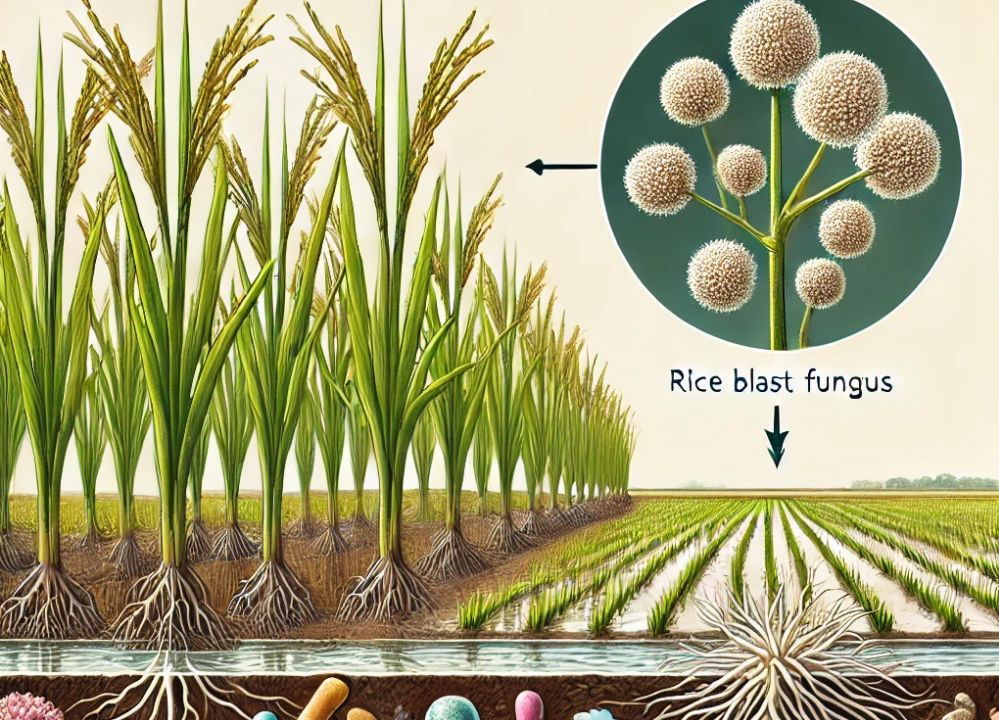
In a recent breakthrough, scientists have uncovered a unique microbial interaction between the rice blast fungus Pyricularia oryzae and a beneficial soil bacterium, Streptomyces griseus. Led by Assistant Professor Yuuki Furuyama from the Department of Applied Biological Science at Tokyo University of Science (TUS), the study highlights how P. oryzae increases the pH of its environment, encouraging the growth of S. griseus. These findings could pave the way for environmentally sustainable strategies to manage rice diseases.
Rice, a staple for over half the global population, faces significant threats from rice blast disease, caused by P. oryzae (also known as Magnaporthe oryzae). This pathogen can devastate rice crops, leading to considerable yield losses. Current control methods rely heavily on chemical fungicides, which not only impact the environment but can also lead to resistance in fungi. As a result, researchers are focusing on alternative approaches that leverage natural microbial interactions to enhance plant health.
In collaboration with Dr. Takayuki Motoyama from the Institute of Physical and Chemical Research and Dr. Hiroyuki Osada from the Institute of Microbial Chemistry, Furuyama's team- including Risa Sugiura, Prof. Kouji Kuramochi, Prof. Takashi Kamakura, and Dr. Takayuki Arazoe- aimed to explore the life cycle of P. oryzae and its interactions with soil microorganisms beyond its infection process in rice. Their study, published in Environmental Microbiology Reports on September 23, 2024, delves into how these microbial dynamics could impact rice health.
Dr. Furuyama noted that while extensive research has focused on how rice blast fungi infect rice plants, much less is known about their interactions with other soil microbes, particularly beneficial ones.
Through experiments that cocultured P. oryzae and S. griseus, the team observed that the presence of the rice blast fungus raised the pH in its growth medium, boosting S. griseus growth without direct contact. This indirect growth enhancement suggests that P. oryzae releases specific alkaline compounds, possibly polyamines, to raise the medium’s pH and stimulate the soil bacterium’s proliferation. Interestingly, other fungi, including Fusarium oxysporum and Cordyceps tenuipes, did not produce the same effect on S. griseus, indicating a unique interaction between P. oryzae and the bacterium.
This microbial interaction has broad implications. S. griseus is known for its antibiotic properties, which can suppress various pathogens, potentially including P. oryzae itself. The findings suggest that S. griseus could act as a natural biocontrol agent in rice fields, providing an alternative to chemical fungicides. Dr. Furuyama highlighted that promoting the growth of S. griseus in rice paddies could provide an environmentally friendly approach to controlling rice blast disease.
Beyond its practical applications, the study offers insights into the ecological role of P. oryzae, suggesting that its pH modulation could influence soil microbial communities. This discovery could also inform new approaches to managing other plant diseases by understanding how fungi shape their environment to impact nearby organisms.
This research marks a significant step toward sustainable agriculture. The ability to harness beneficial microbial interactions, particularly between P. oryzae and S. griseus, may revolutionize rice disease management, potentially reducing dependence on chemical fungicides and promoting a healthier agricultural ecosystem.
(Source: Tokyo University of Science)
















